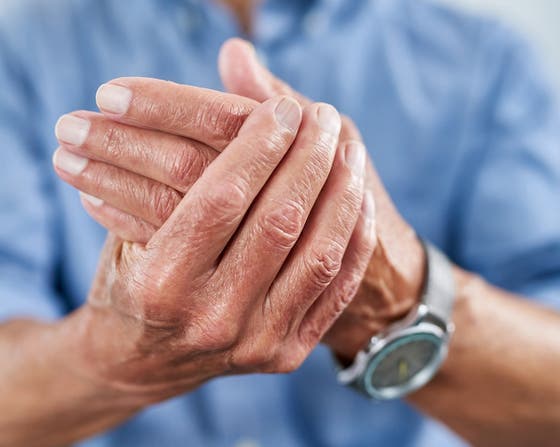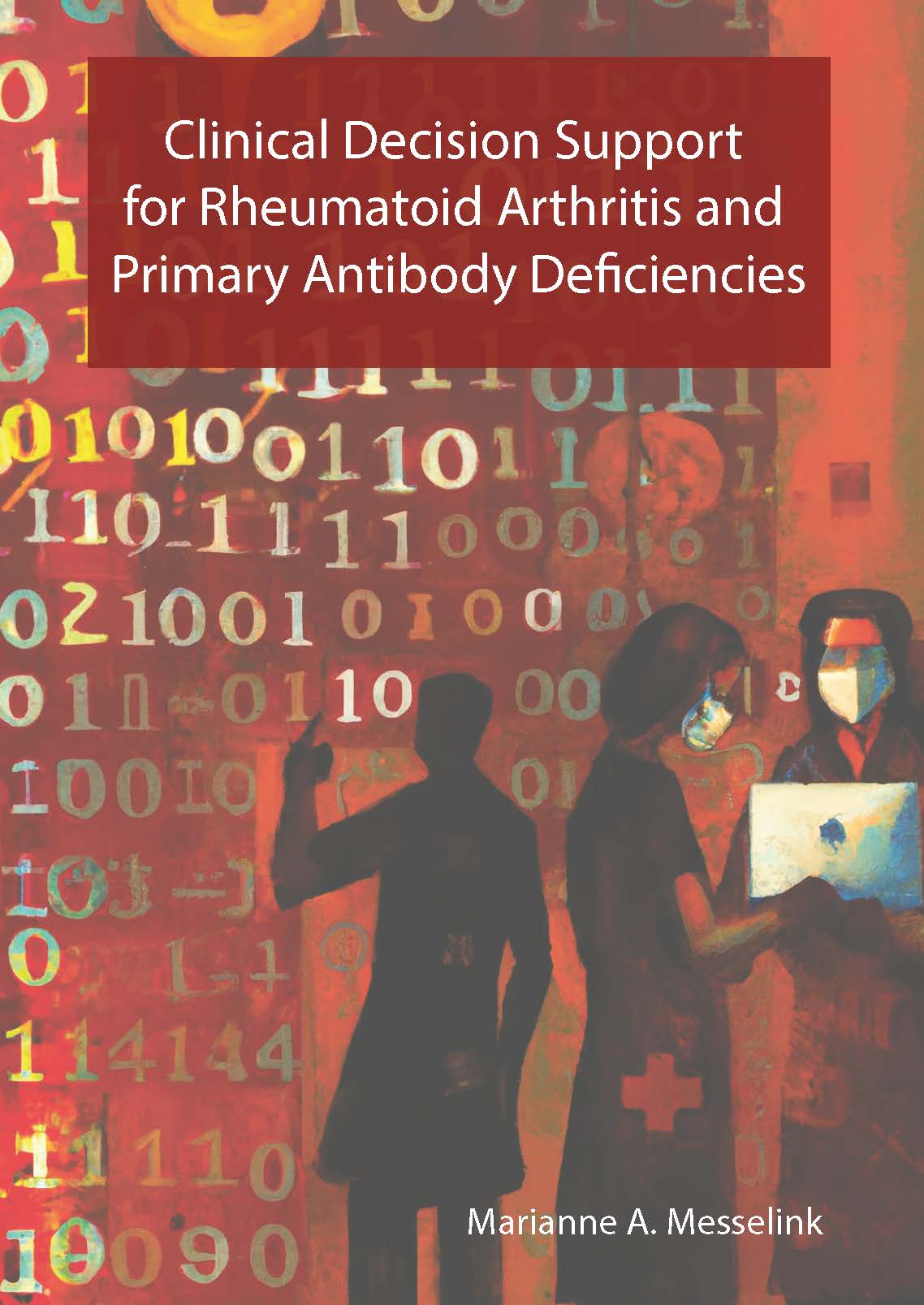Jun 7: A critical appraisal of clinical decision support systems for immune diseases

This PhD thesis by Marianne Messelink (UMC Utrecht) describes the development, validation and evaluation of clinical decision support systems for rheumatoid arthritis and primary antibody deficiency. Such systems have the potential to advance diagnoses and optimize treatments. However, there are also challenges and pitfalls in their development and implementation. Ultimately, the focus should not be on the predictive value, but on the real benefit to the patient and healthcare system.
A clinical decision support system (CDSS) is an electronic system designed to aid in clinical decision-making, in which individual patient-, disease or treatment characteristics are used to generate patient-specific assessments and recommendations, which are then presented to the clinician for consideration. Such recommendations can be made for e.g. diagnoses, additional exams or medical treatment. A CDSS can be rule-based (e.g. derived from literature or clinical guidelines), or it can be based on a prediction model using artificial intelligence (AI) and big data. The PhD thesis of Marianne Messelink, MD (Department of Rheumatology and Clinical Immunology, UMC Utrecht) investigates development and implementation of CDSSs for rheumatoid arthritis (RA) and primary antibody deficiencies (PAD).
Patient perspective
Messelink first described the RA patient perspective on the use of such prediction models as a support in their medical treatment. In general, RA patients were positive about the use of these models in their treatment, provided that certain conditions were met and their concerns were addressed. These outcomes can be used during the development and implementation of prediction models in RA care to enhance patient acceptability.
Diagnostic decision support
In addition, the investigators placed focus on diagnostic decision support. Messelink described different methods for the identification of patients with difficult-to-treat RA in routine care data, and described the development of a CDSS for the early recognition of PAD in primary care. This has the potential to considerably reduce diagnostic delay in PAD, and will be validated in a prospective study.
Marianne Messelink explains the principles of the PATIO study
Scan de bovenstaande QR-code met uw telefoon om een video over dit onderwerp te bekijken. Of bekijk de video via:
Treatment decision support
Using real world data, Messelink and co-workers described the development of a CDSS that aims to reduce the risk of disease flares when tapering RA medication. A dynamic flare prediction model was developed, exclusively based on data typically available in routine care. The results showed that using this model to aid decisions during tapering of biological disease-modifying antirheumatic drugs (bDMARD) reduces the number of flares whilst maintaining most of the bDMARD dose reduction. Marianne Messelink explains the next step: “The model that we have developed predicts if it is possible to taper a biological without causing a disease flare-up. The model uses information from the patient such as historical blood results, medication use and disease activity as digitally available in the electronic health record. Currently, we are testing if the use of this model in clinical practice actually reduces the number of flares during the tapering of biologicals. Therefore, together with the Sint Maartenskliniek in Nijmegen, we are running the randomized, controlled PATIO trial. We expect the results of this study within the next 1-2 years".
PhD defense

Marianne Alice Messelink, MD (1992, Margraten) defended her PhD thesis on June 4, 2024 at Utrecht University. The title of her thesis was “Clinical Decision Support for Rheumatoid Arthritis and Primary Antibody Deficiencies”. Supervisors were prof. Floris Lafeber, PhD (Department of Rheumatology and Clinical immunology, UMC Utrecht) and Alfons den Broeder, MD PhD (Sint Maartenskliniek, Nijmegen). Co-supervisors were Paco Welsing, PhD and Helen Leavis, MD PhD (both Department of Rheumatology and Clinical immunology, UMC Utrecht). Marianne currently works as a street doctor, providing health services for the homeless in Lisbon, Portugal. Upon her return to the Netherlands she will pursue a career as a general practitioner.
